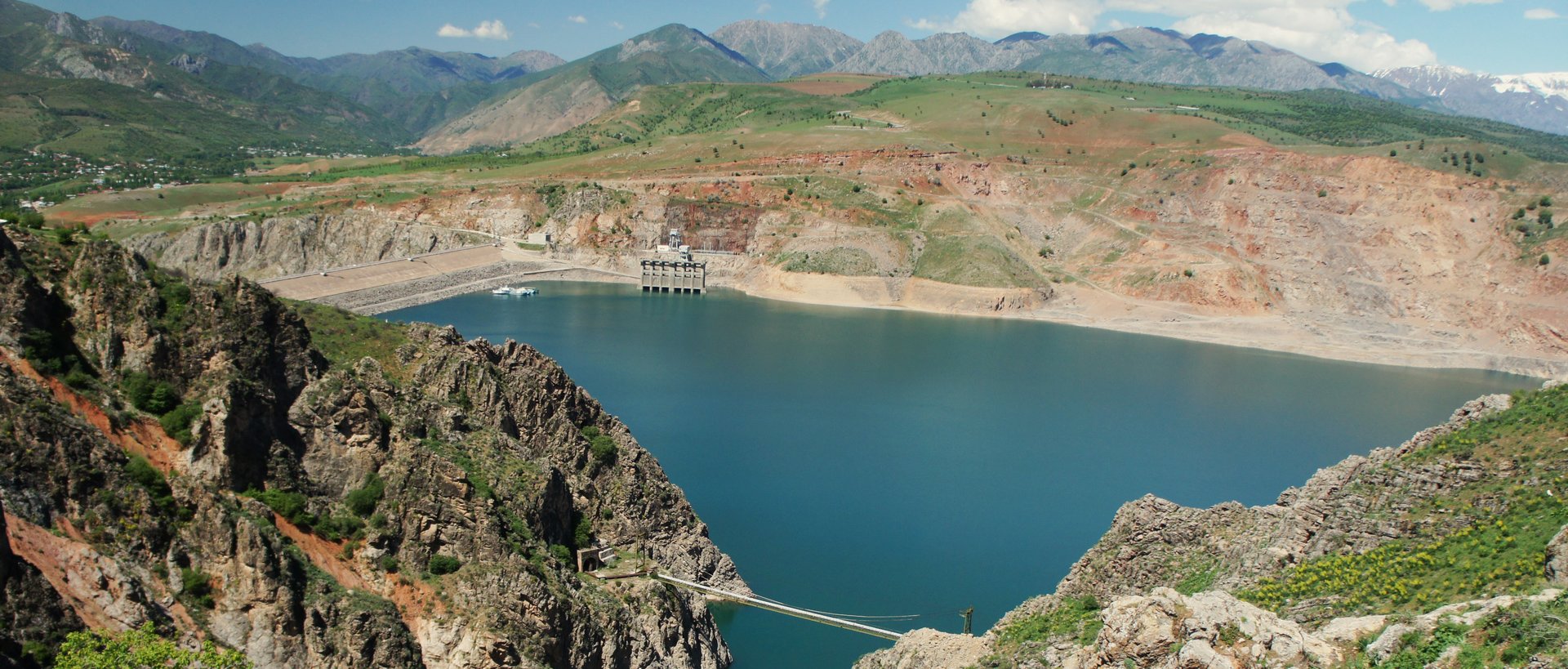Overview of the Current State of Water Management and Preparation of Recommendations for The Development of The Water Sector of The Republic of Uzbekistan
The problem:
Water management in Uzbekistan is a critical and complex issue, involving an extensive network of irrigation and drainage systems that serve approximately 4.3 million hectares of irrigated land. This network includes over 180,000 km of canal systems, 140,000 km of collector-drainage networks, around 160,000 water management structures (including more than 800 large-scale ones), 1,588 pumping stations with an annual capacity of 8.2 billion kW, 55 reservoirs with a total capacity of 19.8 billion cubic meters, and more than 4,100 wells. The country’s agricultural sector is highly dependent on irrigation, which consumes more than 90% of Uzbekistan’s total water resources.
Despite the significance of irrigation for the country’s agriculture, the sector faces several challenges. Over the years, the volume of water withdrawal for irrigation has decreased by more than 10 billion cubic meters since 1980. However, the existing water management infrastructure is aging and in need of modernization to ensure its continued efficiency and sustainability. Issues such as inefficient water use, energy-intensive pumping stations, inadequate maintenance of irrigation and drainage systems, and the lack of automation in hydraulic structures have exacerbated the situation. Additionally, the reclamation status of irrigated lands and the financial sustainability of water management institutions, including Water Consumers Associations, require urgent attention.
Given these challenges, there was a pressing need to develop a comprehensive Water Development Concept for Uzbekistan. This required a thorough assessment of the current state of water management, including the condition of existing infrastructure, water use efficiency, and the financial and operational challenges faced by water management entities. The goal was to provide a strategic framework that would guide the modernization and sustainable management of the water sector in Uzbekistan.
The solution:
To address the critical challenges in Uzbekistan's water management sector, InfoCapital Group LLC (ICG) was engaged to undertake a comprehensive assessment and provide recommendations for the development of a Water Development Concept. The project aimed to lay the groundwork for the sustainable management of the country’s water resources by evaluating the current state of water infrastructure, identifying key areas for improvement, and proposing strategic interventions.
ICG’s approach began with extensive data collection and analysis across various aspects of water management. This included gathering information on the construction, reconstruction, and modernization of water facilities to assess their current condition and identify priority areas for intervention. The reclamation status of irrigated lands was also analyzed to understand the challenges related to soil salinization, waterlogging, and other issues affecting agricultural productivity.
In addition, ICG focused on the energy efficiency of pumping stations, recognizing that these facilities are among the most energy-intensive components of the water management system. By analyzing the energy consumption patterns and exploring potential energy-saving measures, ICG aimed to enhance the sustainability and cost-effectiveness of water pumping operations.
Another critical aspect of the project was the assessment of automation in hydraulic structures and the safety of reservoirs. Automation was identified as a key area for improving water management efficiency, while reservoir safety was crucial for ensuring the reliability of water supply and flood control. ICG collected and analyzed data on the current state of automation and reservoir safety, providing insights into necessary upgrades and improvements.
ICG also evaluated the institutional framework of the water sector, including the role and effectiveness of Water Consumers Associations (WCAs). This involved analyzing the financial sustainability of these organizations and the income levels of farmers who rely on irrigation. Understanding these dynamics was essential for developing recommendations that would support the long-term viability of WCAs and ensure that farmers can continue to benefit from reliable water supplies.
Based on the findings from these analyses, ICG developed a set of recommendations for the development of the Water Development Concept. These recommendations addressed the need for infrastructure modernization, energy efficiency improvements, enhanced automation, and strengthened institutional frameworks. The proposed interventions aimed to create a more resilient and sustainable water management system in Uzbekistan, ensuring that the country’s water resources are managed effectively to support agricultural productivity and broader socio-economic development.
Start date:
11/2018
Services:
Client:
GEF IFAS




